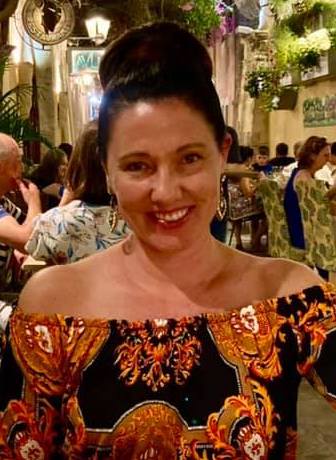
College of Arts, Sciences, & Letters faculty member Kristian Stewart goes the distance — literally.
At home, the Composition and Rhetoric lecturer often rides her bike for miles to accompany her son, who is on the UM-Ann Arbor cross country and track and field teams, when he trains. In the classroom, she travels even further. Stewart makes connections with college campuses throughout the world so UM-Dearborn students can learn about experiences that go beyond our communities.
In one popular campus course, Being Human Today, Stewart works with students on creating three-to-five-minute videos as a way to use digital storytelling to present life through their individual lenses. “You combat stereotypes by having experiences outside of your own. You find solutions to world issues by learning from other people and seeing how they solve problems. Exposure is key.”
But, as an educator who pushes herself to explore new ways of learning, Stewart — who has previously taught in multiple countries (China, Germany and Italy) — didn’t stop there.
She partnered with a university in South Africa to expand the classroom boundaries of her digital storytelling course. In 2016 and 2019, Stewart’s UM-Dearborn students learned how to express themselves through digital story forms and used the medium to create connections with South African students. “We broke down barriers and gained understanding of what it’s like to live in South Africa. My American students tried learning Xhosa and could tongue click and say hello. They learned how far some students in South Africa had to travel to get to a grocery store. We shared stories and friendships grew out of class.”




